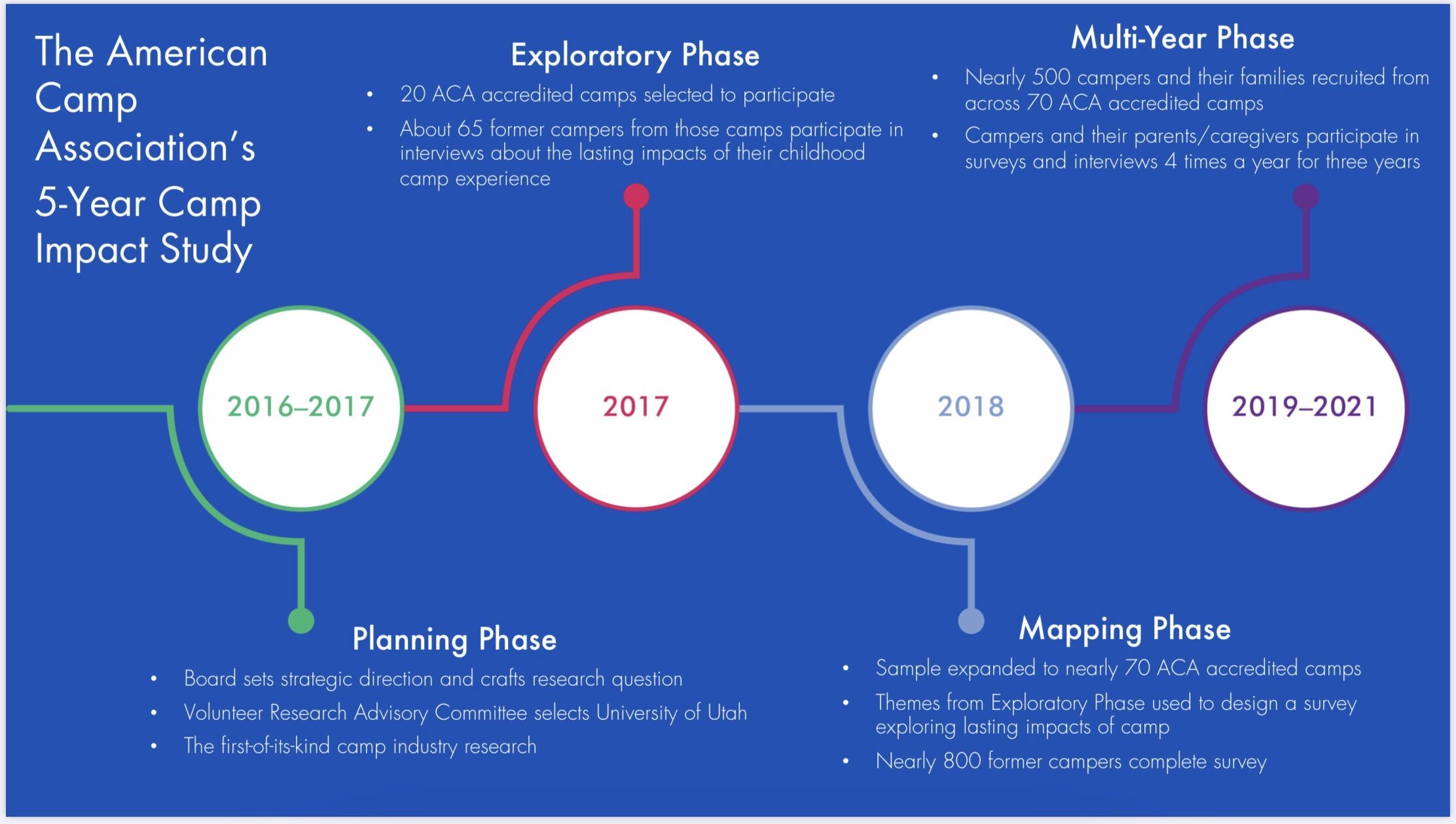10 Parenting Tips from Camp Counselors
At one time in their lives, many of the parents I know were camp counselors. Those same people have told me that their time spent as counselors was great training ground for parenting. Among other things, they learned to comfort, encourage, set goals, and resolve disputes — all things we experience daily in our lives as moms and dads.
At one time in their lives, many of the parents I know were camp counselors. Those same people have told me that their time spent as counselors was great training ground for parenting. Among other things, they learned to comfort, encourage, set goals, and resolve disputes — all things we experience daily in our lives as moms and dads.
However, not every parent has had the benefit of camp counselor training. In fact, most parents have had NO training at all. Perhaps they took a Lamaze class or two, but we all know that having the kid is not the hardest part!
I’ve often lamented that all parents should be required to go through some training, at least the same training camp counselors do (a minimum of one week at most camps). Unfortunately, that is not the case, nor is it realistic. So the best we can do for those who were never camp counselors is offer a few tried and true tips from a few outstanding folks who were:
1. Practice catching kids doing the right thing.
2. Check in with each child one-on-one every day.
3. Establish fun daily traditions: share highs & lows at dinner or bedtime, do riddles, read a book out loud, play games together, collect family memories.
4. Sing and dance together A LOT.
5. Smile and stay positive. Apologize for any crabbiness.
6. Address difficult issues privately and by focusing on the ISSUE not the child.
7. Do team-building activities like sharing goals and dreams.
8. Get unplugged and focus on face-to-face communication.
9. Get outside and get dirty.
10. Follow a predictable schedule and enforce rules consistently.
The Positive Impact of Camp Experiences: American Camp Association Research
Listen to Episode 87 of the Sunshine Parenting Podcast: The Impact of Camp Experiences with Dr. Laurie Brown.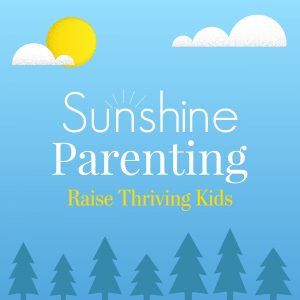
In this episode of the Sunshine Parenting Podcast, I interview Dr. Laurie Browne, Director of Research for the American Camp Association, about the five-year camp impact study being done by an external research team through the University of Utah. The study explores the lasting impacts and the ways camp experiences prepare young people for college, their careers, and their lives beyond camp.
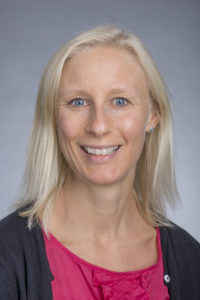
I hope you enjoy this conversation with Laurie and learn more about the incredible research that’s finding that camp truly does have an amazingly positive impact on the development of young people.
BIG IDEAS
- The ACA wants to make sure that camps thrive into the next century and that they serving more campers and in better ways.
- The heart of this five-year study consists of three major components: the youth, the staff, and leadership development. Its objective is to determine the lasting impacts of camp and the interplay between camp, school, home, and future jobs. Through this study of over 500 families, they will identify camp’s role in the “learning landscape”.
- The data collection and analysis is being done by an independent research institution outside of the ACA through the University of Utah.
- We discuss:
- the outcomes and benefits for parents who prioritize camp.
- the importance of having other adults to mentor our children, especially the positive influence of camp counselors.
- what families and schools can learn from camp
- having campers reflect on what they learned at camp so they can apply it to real life situations.
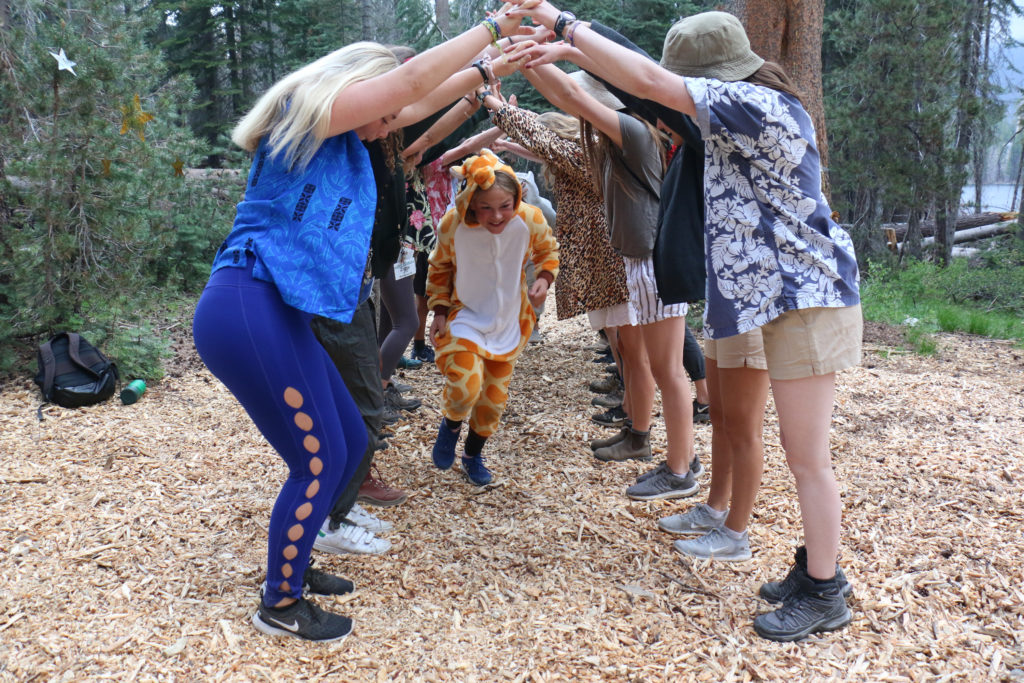
QUOTES
LAURIE: “This is a multi-layered study which builds off itself, starting with qualitative approaches, interviews, and surveys. Then the findings were quantified and a longitudinal study was designed which is tracking campers and their families over time.”
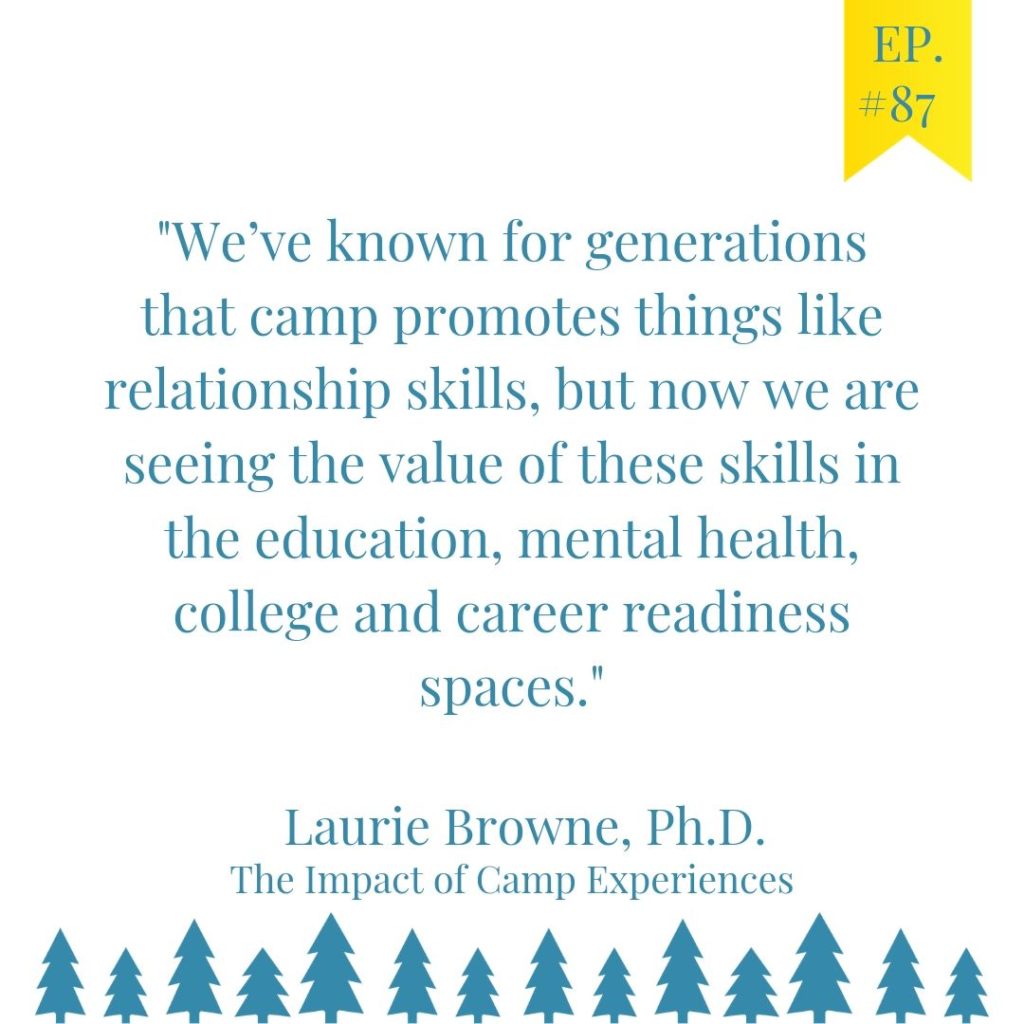
LAURIE: “We’ve known for generations that camp does great things for kids. But I think the environment is far more ready for the type of social, emotional learning related outcomes that camp provides. We’ve known for a hundred years that camp promotes things like relationship skills, but only now we are seeing in the education, mental health, college and career readiness spaces, the value of relationship skills. We have employers saying that is the number one skill they expect in college graduates. That is harder and harder to find.”
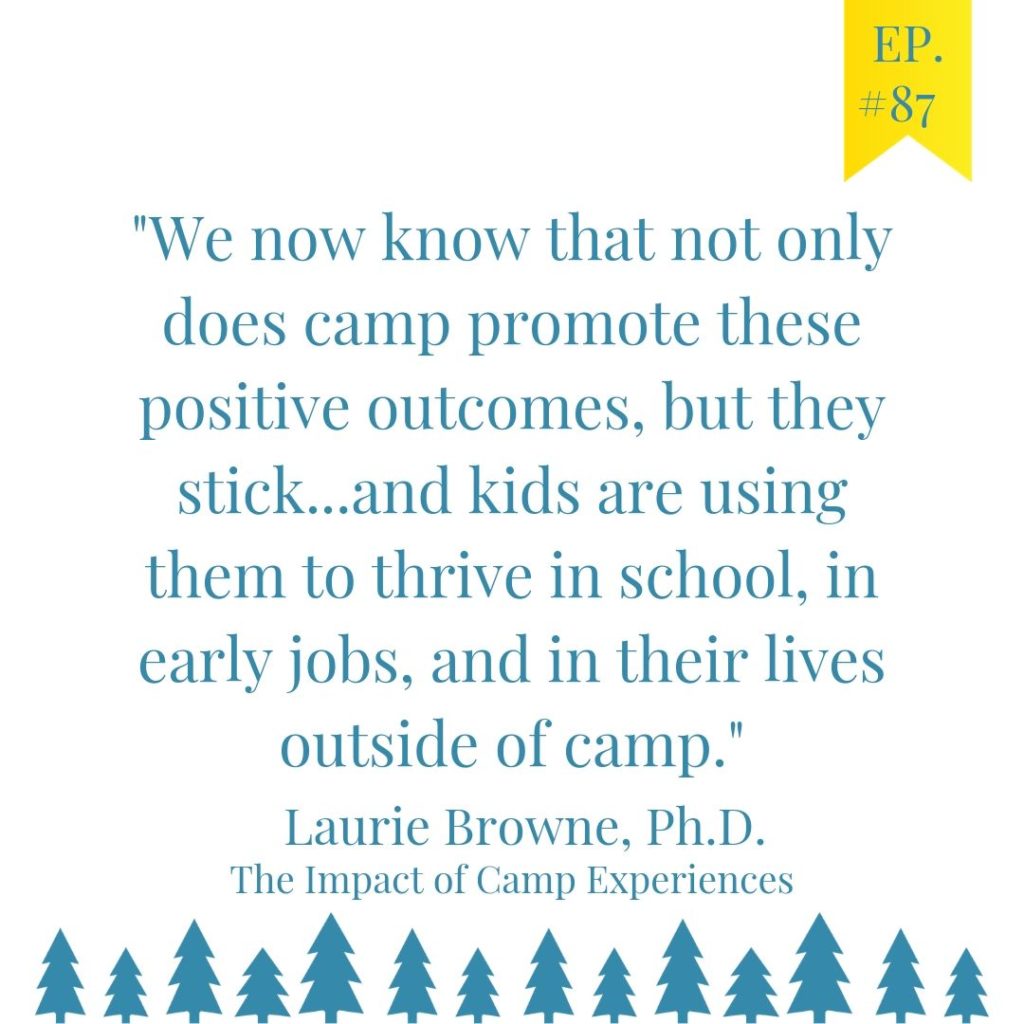
AUDREY: “Other places (school, sports) have another focus that is their most important priority (academics, sports skills) but at camp, our number one focus is on the community building, the cultural building, and training our counselors to facilitate friendships and relationships among campers.”
LAURIE: “It all layers on top of one another, the interplay between camp and school and home. All the spaces work together to create a thriving, successful child. And now we know that camp plays a very unique—even critical—role in that overall landscape.”
LAURIE: We’re interested in the family dynamic around camp. How do families choose to go to camp? How do they integrate camp with the other things in their lives? (In this study) parents are emerging as beneficiaries and have their own outcomes relating to camp. We’re specifically having parents share with us the value and benefits to them of sending their kids to camp, day camp and overnight camp. Parents are recognizing that kids come home and in many cases, are more active citizens in the family. So it improves family processes when they send their kids to camp. But specifically, in overnight camp experiences, parents are saying, ‘I’m a better parent. I get some time to connect with my partner, to engage in some of the things I don’t always get to do when I am busy caretaking.’ Then when the kids come back, they are really happy so as a family unit, it brings all kinds of benefits to parents as well.”
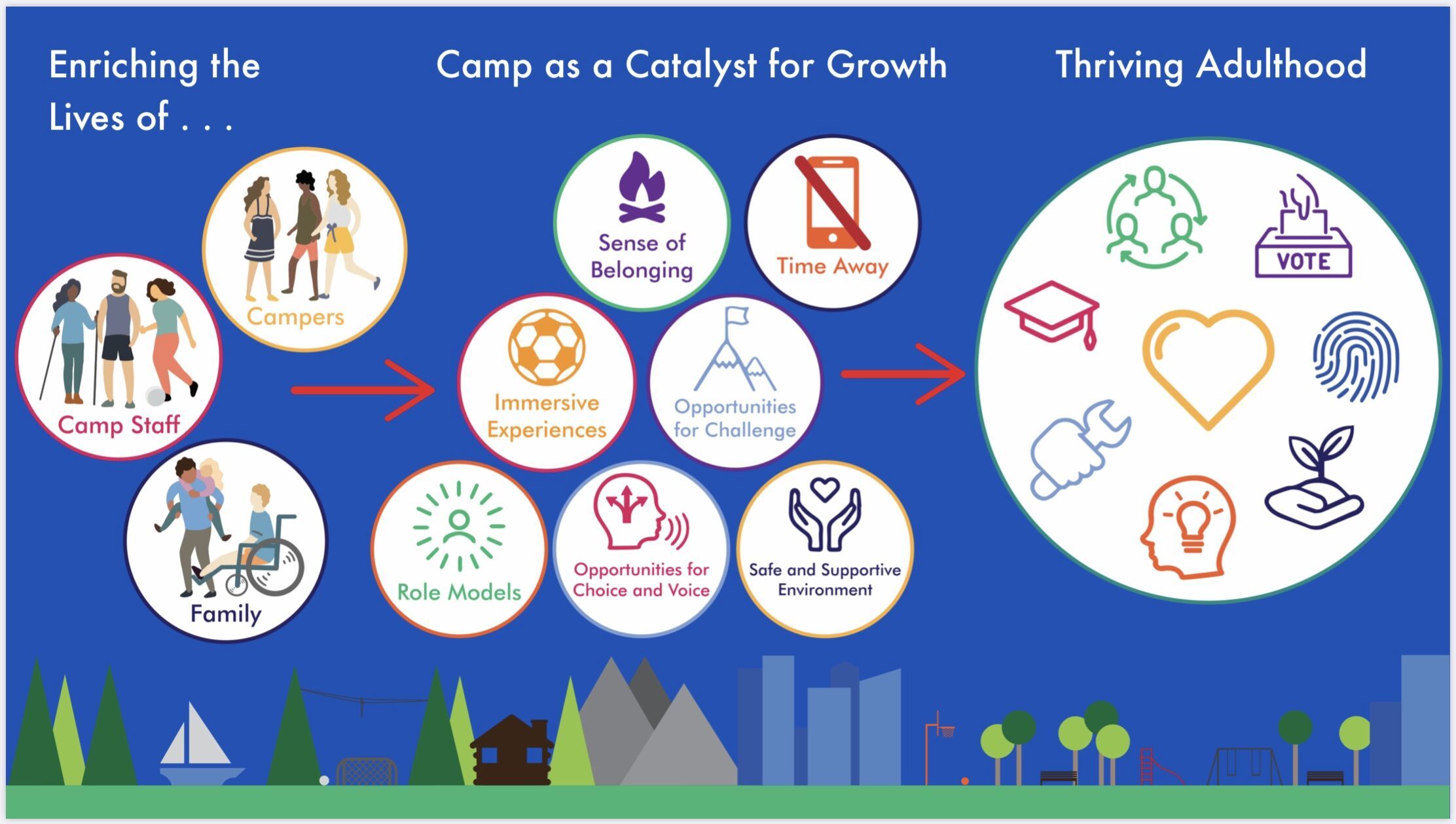
AUDREY: “I’ve heard from many parents that it’s almost a relief to know their children are being taken care of. They can relax. They don’t need to be monitoring, following, texting. It’s a much-needed break for parents who feel so much pressure to be so involved with everything. For so many parents who are working and taking care of kids, their lives are so full that what often gets neglected is their own well-being and what brings them happiness.”
AUDREY: “I tell parents to use the time when their kids are at camp to have their own ‘camp’ type of well-being experience: be with your spouse, your friends, do hobbies that you don’t normally have time to do, so that when your kids come home and have all these great things to share about what they’ve done, you can share, too.”
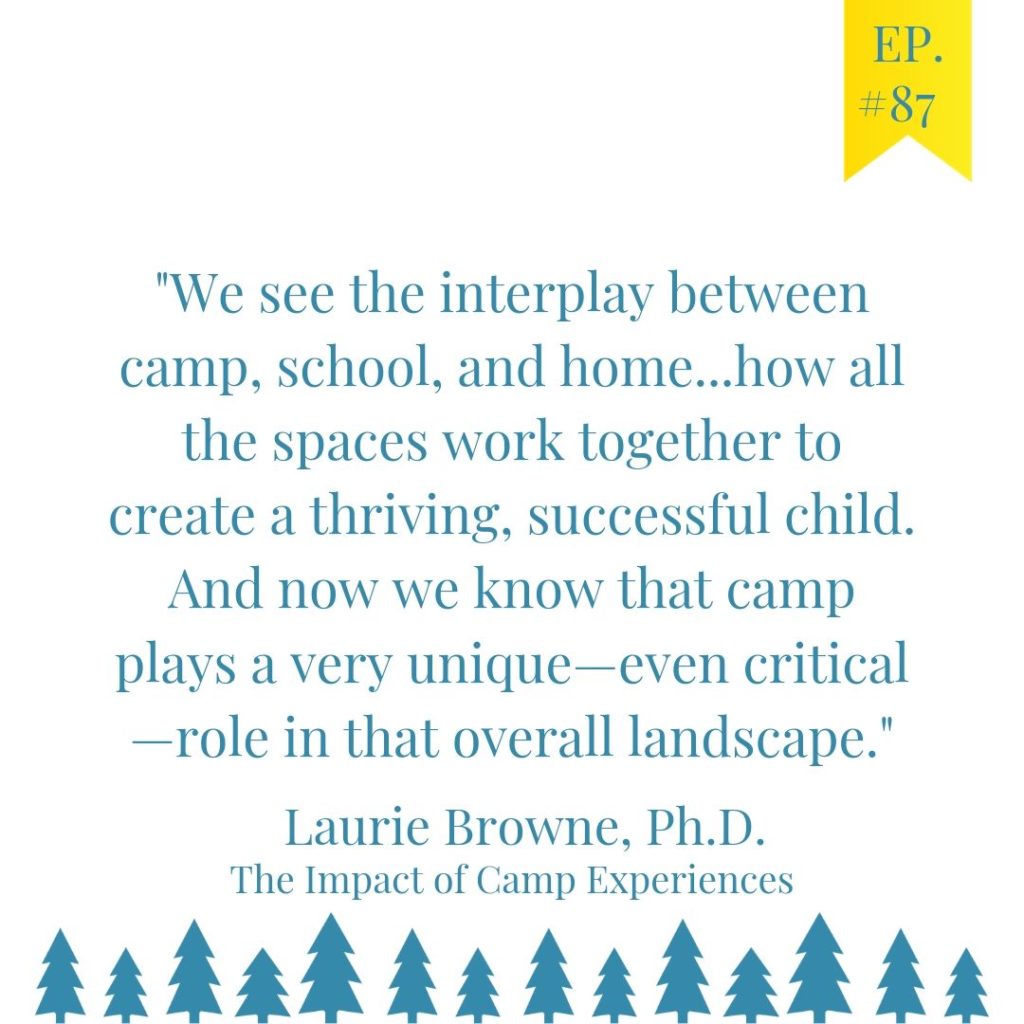
LAURIE: “We have to cultivate happiness by doing things other than work and caregiving. It’s an investment in our own well-being and we are better parents when we make that investment. I think as mothers we feel really inclined to set aside our well-being for our kids. But now there’s so much dialogue around the importance of our time away from kids and to know that your child is thriving because they’re apart from you, is literally one of the findings we are seeing.”
LAURIE: “The opportunity for kids to practice a sense of independence and from that, they can develop a true sense of responsibility and not just that they do their chores but they see themselves as a responsible contributor to their family, to their community and they get to practice that at camp. There are benefits to campers and parents.”
AUDREY: “Even if you don’t send your kids to camp ever, it’s important to find other adults who can mentor your kids because there are some things that your kids either won’t do with you there or will be more tentative about trying. It’s okay for parents to know that you’re not supposed to be able to teach your child everything. That’s why you have teachers at school, sports coaches, camp counselors…So much of who my kids are is because of these amazing role models. How fun for them to get to learn from and interact with other adults. That’s the other lesson that camp can provide for parents: You don’t have to feel like you’re alone in this.”
LAURIE: “Camp counselors are simply younger and more relatable than a lot of the adults that kids encounter in other spaces of their lives. That closeness in age is a really critical opportunity not just for mentorship but for kids to see themselves as an emerging adult. Camp counselors seem attainable. Our staff members are the ones that are really modeling these outcomes, facilitating opportunities to learn and helping those outcomes to stick over time.”
AUDREY: “I think parents looking at camps need to know that you don’t need a fancy facility or fancy equipment. It really is all about the camp counselors—how they treat kids and how focused they are on the kids as their top priority.”
LAURIE: “A culture of caring, a culture of inclusiveness, a culture of belonging is created by all the people combined. We have staff, and then we have campers, but you put all of them together with the traditions and the norms of camp and that creates a culture that in and of itself is so powerful as a mechanism for lasting learning. It’s about intentional culture building around care, safety, and inclusiveness—it’s really what matters.
LAURIE: “What a great opportunity to practice being a member of a community that isn’t their family—especially in adolescence. As kids grow up, they have to be able to see themselves in worlds outside of their homes. That’s a critical part of their developmental process.”
LAURIE: “Kids are making connections between camp and home and school. What a great opportunity for parents, educators and camp professionals to help bring more visibility to those linkages. Help campers identify the connections between them.”
AUDREY: “We have kids reflect before they leave camp about what they’re going to bring home with them. We ask them, ‘what have you learned here that you’re going to use in your life’ and it’s amazing to hear them articulate what they’re going to take back. They learn these great things but they need to take the time to figure out how they’re going to translate this to the rest of their life, the other weeks of the year beyond camp.”
LAURIE: “Research is exciting, but it really doesn’t matter near as much as what really amazing camp professionals are doing with campers and staff. That’s where the magic happens.”
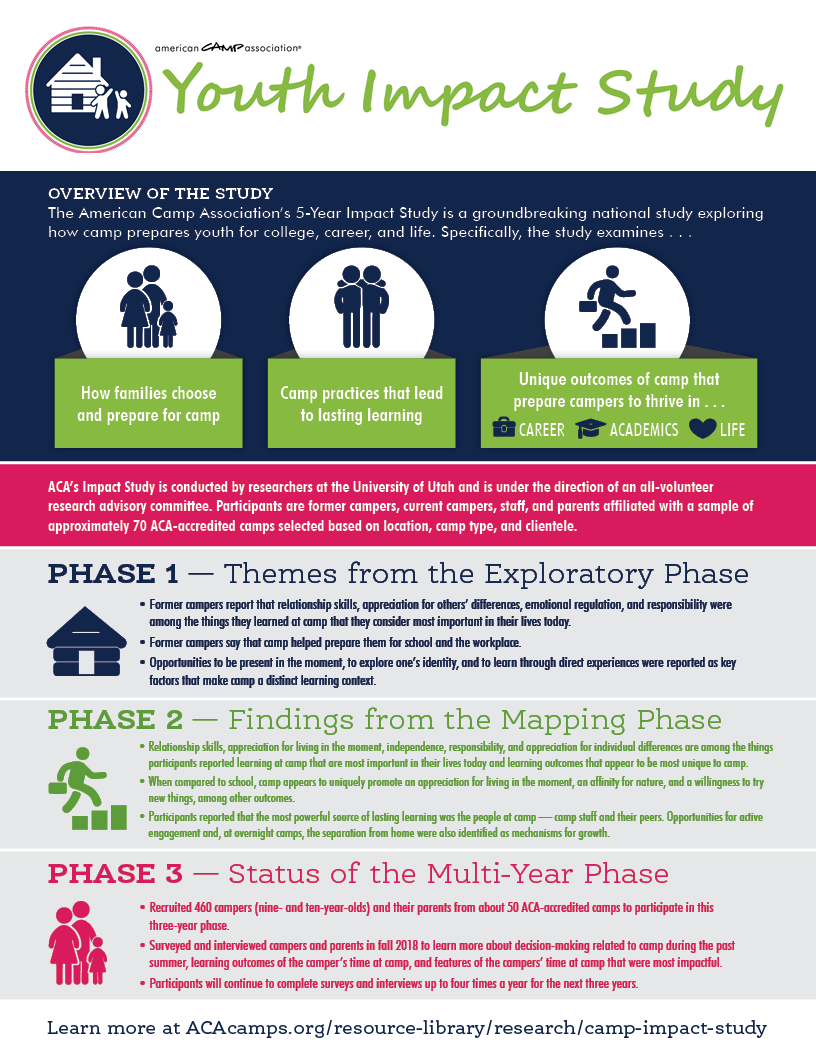
LINKS
Susan Pinker– The Village Effect Ted Talk
RELATED POSTS/PODCASTS
Research finds Children Learn Social Skills at Camp
Ep. 32: 10 Benefits of Summer Camp for Teens
Podcast originally published at Sunshine Parenting.
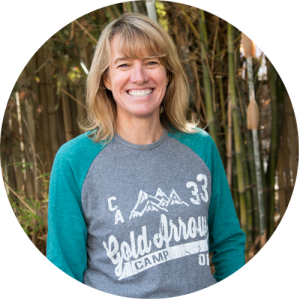
Audrey “Sunshine” Monke, MA, has been the owner of Gold Arrow Camp since 1989 and currently serves as the Chief Visionary Officer. In addition to her vision-casting and mentoring at GAC, Sunshine is an author (Happy Campers: 9 Summer Camp Secrets for Raising Kids Who Become Thriving Adults), podcast host, speaker and coach on the topics of parenting, social skills, and happiness. Find out more at her website, Sunshine Parenting.

